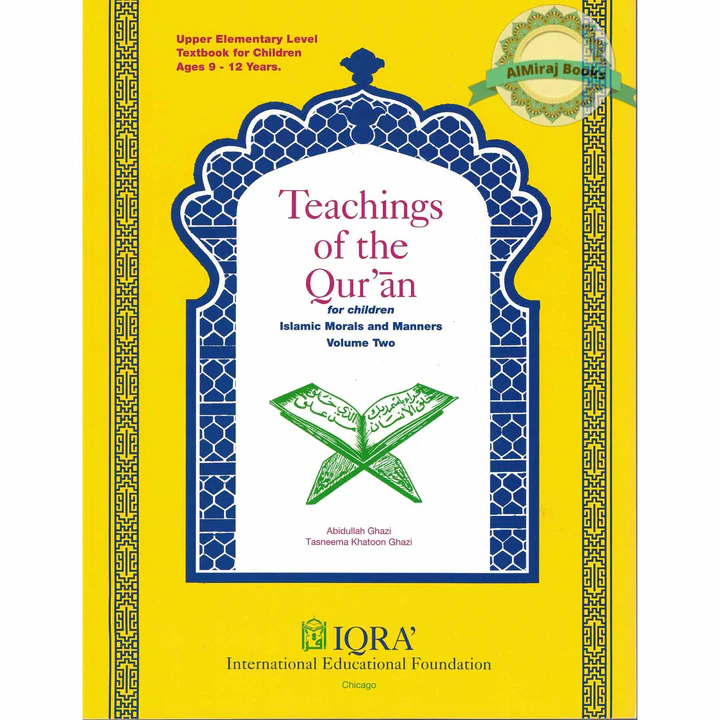” Abdullah Ghazi ” The Quran is not a book to be read, but a divine guide to be understood and lived. Of its numerous chapters, Surah Al-Baqarah is the longest surah in the Quran and one of its most holistic in its teachings. Read attentively, it addresses virtually every facet of human existence—spiritual, social, legal, ethical, and personal. This surah holds both warning and wisdom, call to action and mercy, and is therefore a vital component of every Muslim’s experience with the Quran.
One person who has made important contributions in bringing Muslims, particularly youth and young adults, closer to the teachings of the Quran is Dr. Abdullah Ghazi. His contribution to the development of Islamic curriculum, especially through IQRA’ International Educational Foundation, has paved a robust path for the study of the Quran in a meaningful and systematic manner. His methodology of teaching Surah Al-Baqarah is a pattern of how we can make the depth of the Quran reachable near the hearts of contemporary learners.
Who Is Abdullah Ghazi?
Dr. Abdullah Ghazi is an acclaimed Islamic educator, writer, and curriculum specialist who, with his wife Dr. Tasneema Ghazi, co-established IQRA’ International Educational Foundation in the United States. Their efforts of the past few decades have had a groundbreaking impact on North American Islamic education and beyond.
What makes Dr. Ghazi’s approach unique is his ability to synthesize classical Islamic knowledge with contemporary pedagogical methods. He does not present the Quran as a distant or complex text. Instead, he invites learners—especially young Muslims—to understand the Quran within their context, drawing lessons that speak to their lives, challenges, and aspirations.
Surah Al-Baqarah: A Surah of Guidance and Governance
Surah Al-Baqarah is 286 verses long and was revealed in Madinah. It is a surah of legal, spiritual, and moral guidance. It includes the verse of the Throne (Ayat al-Kursi), the verses on fasting during Ramadan, the laws of financial dealings, and the accounts of ancient nations. Through these themes, it seeks to form a God-conscious, equitable, and harmonious community.
Abdullah Ghazi’s educational material encourages students not only to memorize these verses but to explore their meanings. For example, when studying Ayat al-Kursi, students are led to reflect on Allah’s attributes and how His knowledge and authority provide peace and purpose. This is not mere rote memorization. It is reflective engagement, encouraging students to internalize the Quran’s teachings and apply them in their everyday lives.
Making Surah Al-Baqarah Accessible to Young Learners
One of the most notable aspects of Abdullah Ghazi’s work is how he structures learning around comprehension. In many of his Quran study guides, lessons are introduced with themes, followed by vocabulary building, key concepts, and reflective questions. Surah Al-Baqarah, with its length and complexity, can be daunting to beginners. But Ghazi’s method breaks it into manageable parts.
For example, when introducing the initial verses that outline the traits of believers, disbelievers, and hypocrites, his resources take students through life-like analogies. Who are the contemporary believers? What does it mean to obey the invisible? How do we protect our hearts against hypocrisy? Such kinds of introspective discussions place the message of the Quran in the life of the student, rendering it relevant and transfiguring.
Surah Al-Baqarah as a Foundation for Islamic Character
In Abdullah Ghazi’s model, Surah Al-Baqarah is not only about legal rulings or historical narratives. It is about building the soul of a believer. His work emphasizes that this surah lays the foundation for Islamic character—truthfulness, patience, prayer, responsibility, and justice.
When they’re learning about past civilizations who have ignored God’s guidance, it’s not just about the history but about what’s to be learned. What did they do wrong? What can we learn from their failures? That way, students don’t merely learn what happened—what they learn is why it matters.
This method inculcates a sense of moral responsibility. The students are not mere recipients of information; they are taught to think, reflect, and act. This is the spirit of studying the Quran—not simply to recite it beautifully, but to live according to its light.
Surah Al-Baqarah and the Message of Unity
Another important point that Abdullah Ghazi highlights through his teachings is the Quranic stress on unity and collective responsibility. Surah Al-Baqarah speaks to the Muslim ummah as a people elected to promote justice and divine guidance on the planet.
In the fragmented, distracted world we are in today, the values of unity, community responsibility, and service to others are particularly necessary. Through discussions and group learning exercises, Ghazi’s resources challenge students to consider their place in the community. How do we become part of the solution? How do we bear the responsibility of being “the best nation brought up for mankind”?
Integrating Quran with Daily Life
A hallmark of Abdullah Ghazi’s method is the integration of Islamic values with daily life. Surah Al-Baqarah speaks about business ethics, marriage, debt, orphans, and even dietary laws. Rather than viewing these as isolated rulings, Ghazi’s curriculum shows how they form a complete lifestyle of submission to Allah.
Students can observe how Quranic values influence their decisions—how they talk to parents, behave with classmates, manage their finances, or handle difficulties. The Quran is a living reference guide instead of a remote book on a shelf.
Memorization with Meaning
Though Abdullah Ghazi recognizes the significance of memorization, he would never approach it as an end in itself. Memorization is merely a starting point. His teachings are aimed at making each verse clear to understand in its own context, and that students can describe its meaning in their own words.
In Surah Al-Baqarah, verses such as the instruction to seek assistance by means of patience and prayer, or the reminder that Allah does not place a burden on a soul more than it can handle, receive special emphasis. These are not mere verses for recitation—they are verses for living and feeling.
Conclusion
Surah Al-Baqarah is a surah of wisdom, depth, and overall guidance. It is not necessarily simple to teach, particularly to younger or non-Arabic speaking communities. However, through the visionary efforts of teachers such as Dr. Abdullah Ghazi, such a grand surah becomes not merely accessible but profoundly effective.
His method keeps us in mind that Quranic learning is not scholarly alone but spiritual and applicable as well. It transforms hearts, intellect, and society. Through the clear, thought-provoking, and applicable explanation of Surah Al-Baqarah, Abdullah Ghazi has enabled thousands of individuals to relate more deeply with the Quran.
If the teachings of Surah Al-Baqarah are taught with understanding and sensitivity, they can be lifelong friends for Muslim students. With systematic study, close reading, and affection for the Quran, we can honor the charge not only to recite the Book, but to apply its teachings daily.
Read more: KinKed Press


